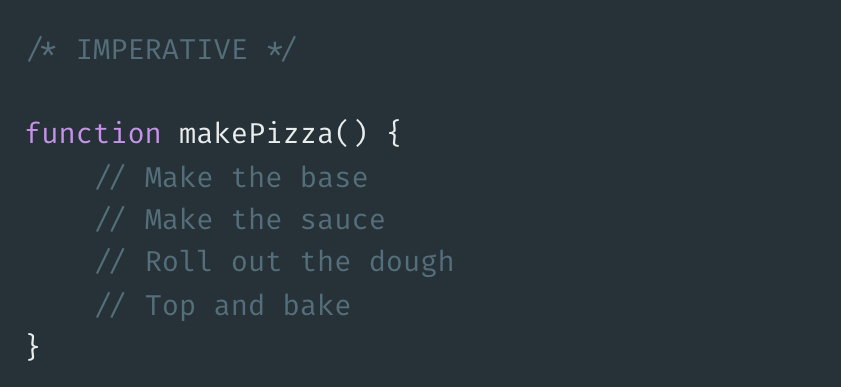What are programming paradigms? 🤔
A classification of programming languages
Hey, Bryan here! Welcome to my newsletter. Each week I publish content to help you get to the next level in your career. Here we talk about coding, from what a programming language is to how to become an outstanding tech lead. If you have questions, don’t agree with something, or just want to say “Hi!” don’t hesitate to send me a message ❤️.
Subscribe to get new posts.
Programming paradigms are ways to solve problems or tasks.
Programming languages may stick to particular paradigms, for example, Haskel was built around functional programming or languages that are multi-paradigm like Javascript.
Many paradigms can be broken down into two major categories Imperative Paradigm or Declarative Paradigm.
Imperative Paradigm: the focus is on HOW to give a set of tasks/instructions to change the system. Can be divided into using:
Procedural
Object Oriented Programming
Structural
Declarative Paradigm: the focus is on the WHAT the task is or the what’s the expected outcome. Can be achieved using:
Logic
Functional
For example, let’s say you want to make a pizza where the main actions are:
Make the base.
Make the sauce
Roll out the dough
Top and bake
Imperative
We do one task right after the other.
Object Oriented Programming (OOP)
The idea of OOP is to represent real-world objects into classes within a given programming language like Pizza, Oven, Client
Functional
Functional programming follows the same idea of mathematical functions, where functions are first-class citizens, pure functions, etc.
Declarative
If you use HTML, React, or SQL, you declare what you want, not how to render or the approach to get the data in the case of SQL.
This is pure educational knowledge that can take you to a whole different world where you can view crazy programming languages like Prolog, which is a logical language that changes the way how you think about problems and solutions.






